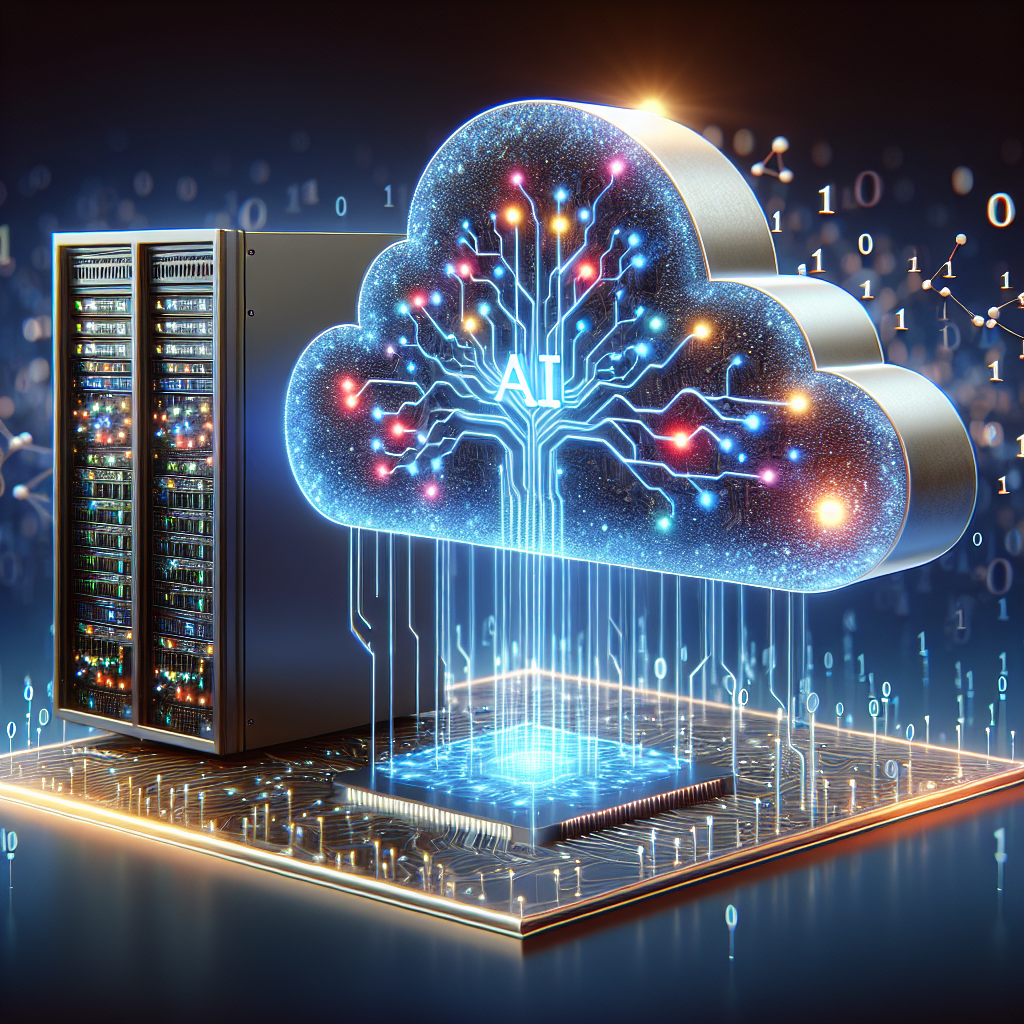AI algorithms in cloud computing have revolutionized the way businesses operate by providing unprecedented levels of efficiency, scalability, and cost-effectiveness. These algorithms leverage the power of artificial intelligence to analyze vast amounts of data, make predictions, and automate complex tasks, thereby enabling organizations to harness the full potential of cloud computing resources. In this article, we will explore the impact of AI algorithms in cloud computing, their benefits, challenges, and future prospects.
The marriage of artificial intelligence and cloud computing has paved the way for a new era of innovation and disruption across various industries. AI algorithms are being used to optimize cloud infrastructure, enhance security, improve data analytics, and streamline business operations. By leveraging AI algorithms in the cloud, organizations can achieve significant cost savings, improve performance, and gain a competitive edge in the market.
One of the key advantages of AI algorithms in cloud computing is their ability to automate routine tasks and optimize resource utilization. For example, AI algorithms can analyze historical data patterns to predict future resource requirements, thereby enabling organizations to provision resources more efficiently and reduce operational costs. In addition, AI algorithms can automate monitoring and management of cloud resources, enabling organizations to quickly identify and resolve issues before they impact business operations.
AI algorithms also play a crucial role in enhancing security in cloud computing environments. By analyzing network traffic, user behavior, and system logs, AI algorithms can detect anomalies and potential security threats in real-time. This proactive approach to security enables organizations to mitigate risks and safeguard their sensitive data from cyber attacks.
Furthermore, AI algorithms are being used to improve data analytics in the cloud. By leveraging machine learning algorithms, organizations can gain valuable insights from large volumes of data and make informed decisions to drive business growth. AI algorithms can analyze data patterns, identify trends, and predict future outcomes, thereby enabling organizations to optimize their operations and achieve their business objectives.
Despite the numerous benefits of AI algorithms in cloud computing, there are also challenges that organizations need to address. One of the key challenges is the complexity of implementing and managing AI algorithms in the cloud. Organizations need to have the necessary expertise and resources to develop, deploy, and maintain AI algorithms effectively. In addition, organizations need to ensure that their AI algorithms comply with regulatory requirements and ethical standards to avoid potential legal and reputational risks.
Another challenge is the lack of transparency and interpretability of AI algorithms. As AI algorithms become more sophisticated and complex, it becomes increasingly difficult for organizations to understand how they arrive at certain decisions or predictions. This lack of transparency can lead to mistrust and skepticism among stakeholders, which can hinder the adoption of AI algorithms in the cloud.
Despite these challenges, the future of AI algorithms in cloud computing looks promising. As technology continues to evolve, AI algorithms will become more advanced and sophisticated, enabling organizations to unlock new opportunities and drive innovation. By harnessing the power of AI algorithms in the cloud, organizations can gain a competitive edge, improve operational efficiency, and deliver superior customer experiences.
In conclusion, AI algorithms in cloud computing are a game changer that is transforming the way organizations operate and compete in the digital age. By leveraging the power of artificial intelligence, organizations can optimize their cloud infrastructure, enhance security, improve data analytics, and automate complex tasks. While there are challenges to overcome, the benefits of AI algorithms in cloud computing far outweigh the risks. As organizations continue to embrace AI algorithms, they will be able to unlock new opportunities, drive innovation, and achieve their business objectives with greater efficiency and effectiveness.
FAQs:
Q: What are AI algorithms in cloud computing?
A: AI algorithms in cloud computing are algorithms that leverage artificial intelligence to analyze data, make predictions, and automate tasks in cloud computing environments. These algorithms enable organizations to optimize resource utilization, enhance security, improve data analytics, and streamline business operations.
Q: How do AI algorithms benefit organizations in cloud computing?
A: AI algorithms benefit organizations in cloud computing by enabling them to achieve cost savings, improve performance, and gain a competitive edge in the market. These algorithms automate routine tasks, optimize resource utilization, enhance security, and improve data analytics, thereby enabling organizations to harness the full potential of cloud computing resources.
Q: What are the challenges of implementing AI algorithms in cloud computing?
A: One of the challenges of implementing AI algorithms in cloud computing is the complexity of developing, deploying, and maintaining these algorithms. Organizations need to have the necessary expertise and resources to effectively implement AI algorithms. Another challenge is the lack of transparency and interpretability of AI algorithms, which can hinder their adoption in cloud computing environments.
Q: What is the future of AI algorithms in cloud computing?
A: The future of AI algorithms in cloud computing looks promising, as technology continues to evolve and advance. AI algorithms will become more sophisticated and advanced, enabling organizations to unlock new opportunities, drive innovation, and achieve their business objectives with greater efficiency and effectiveness.

